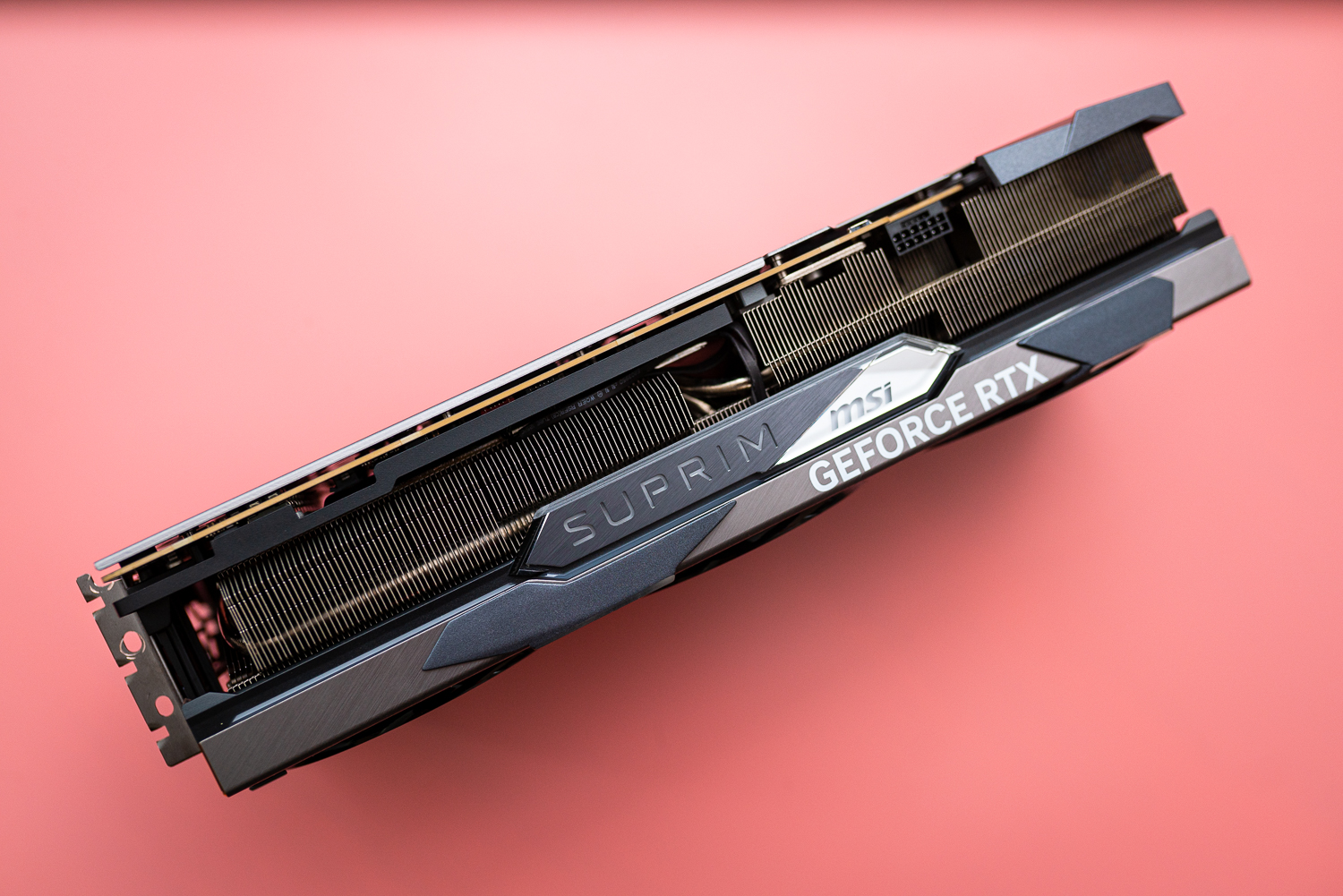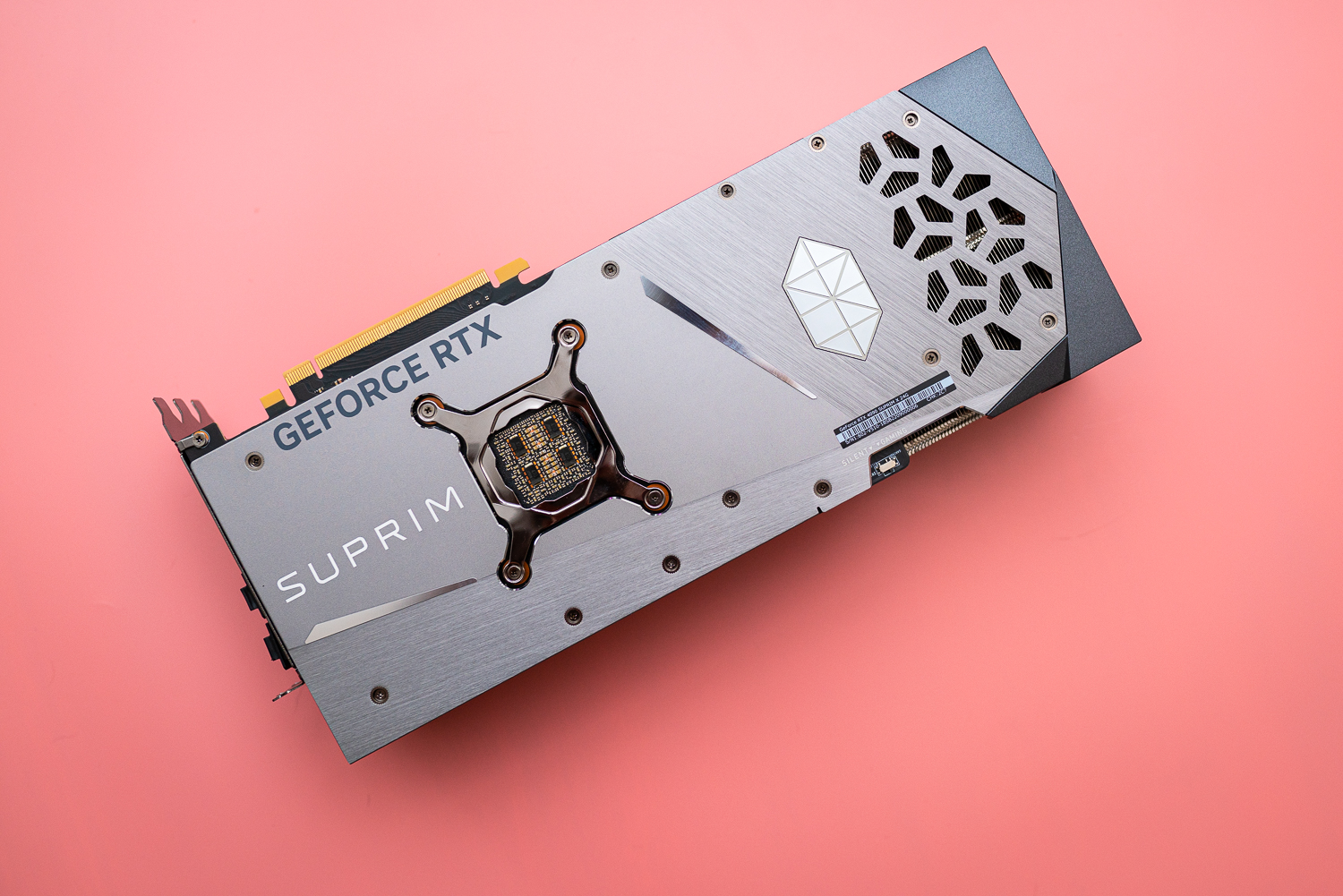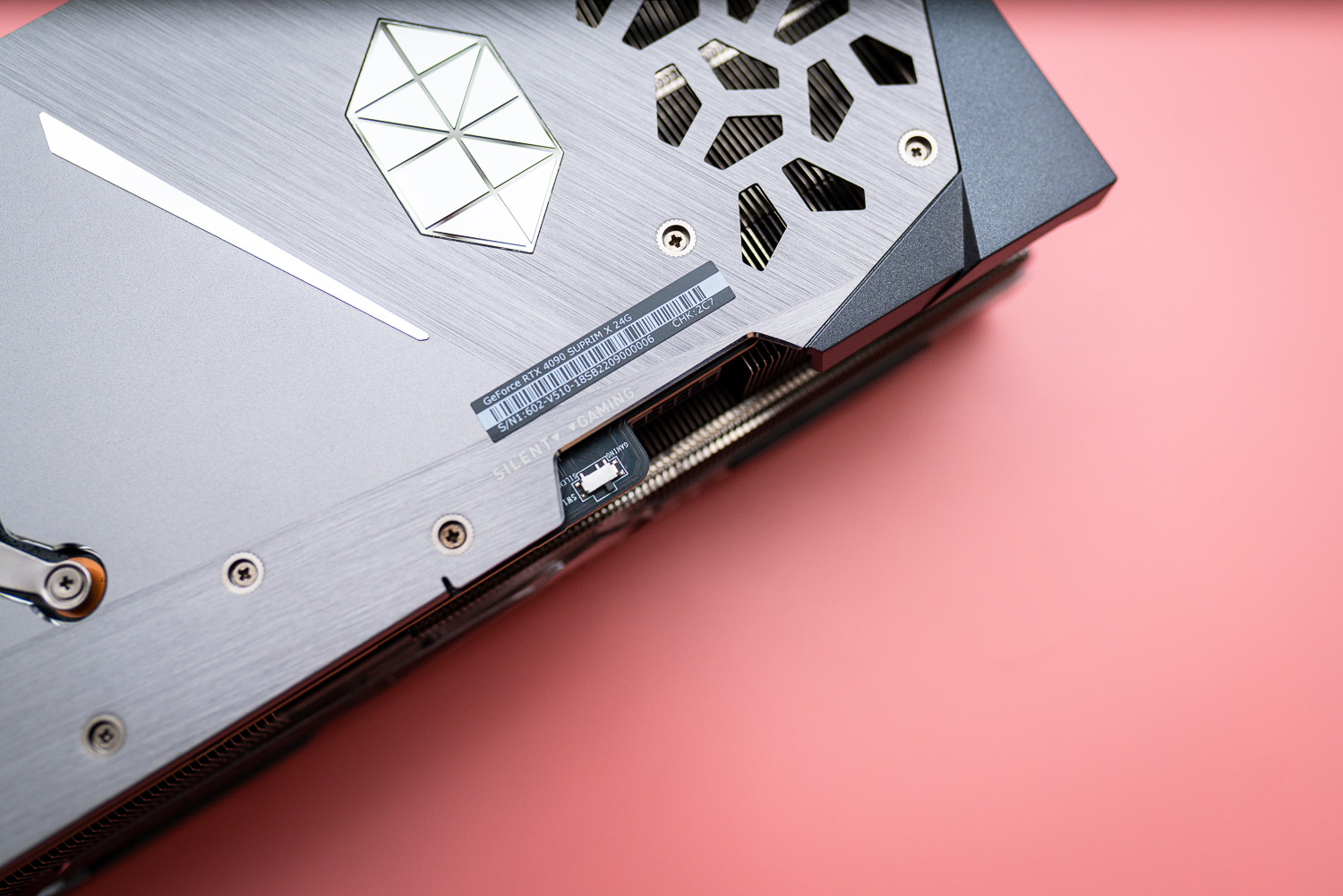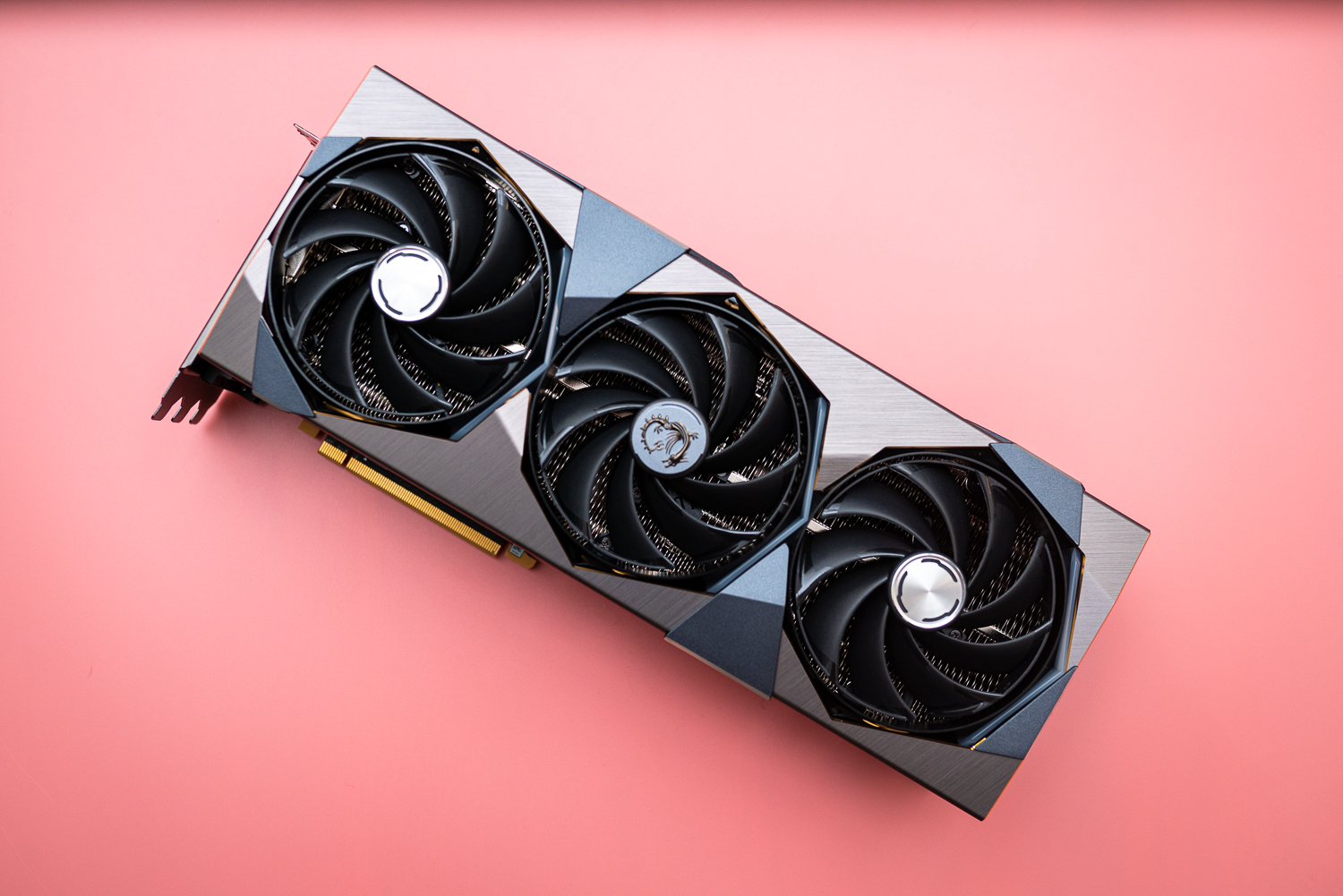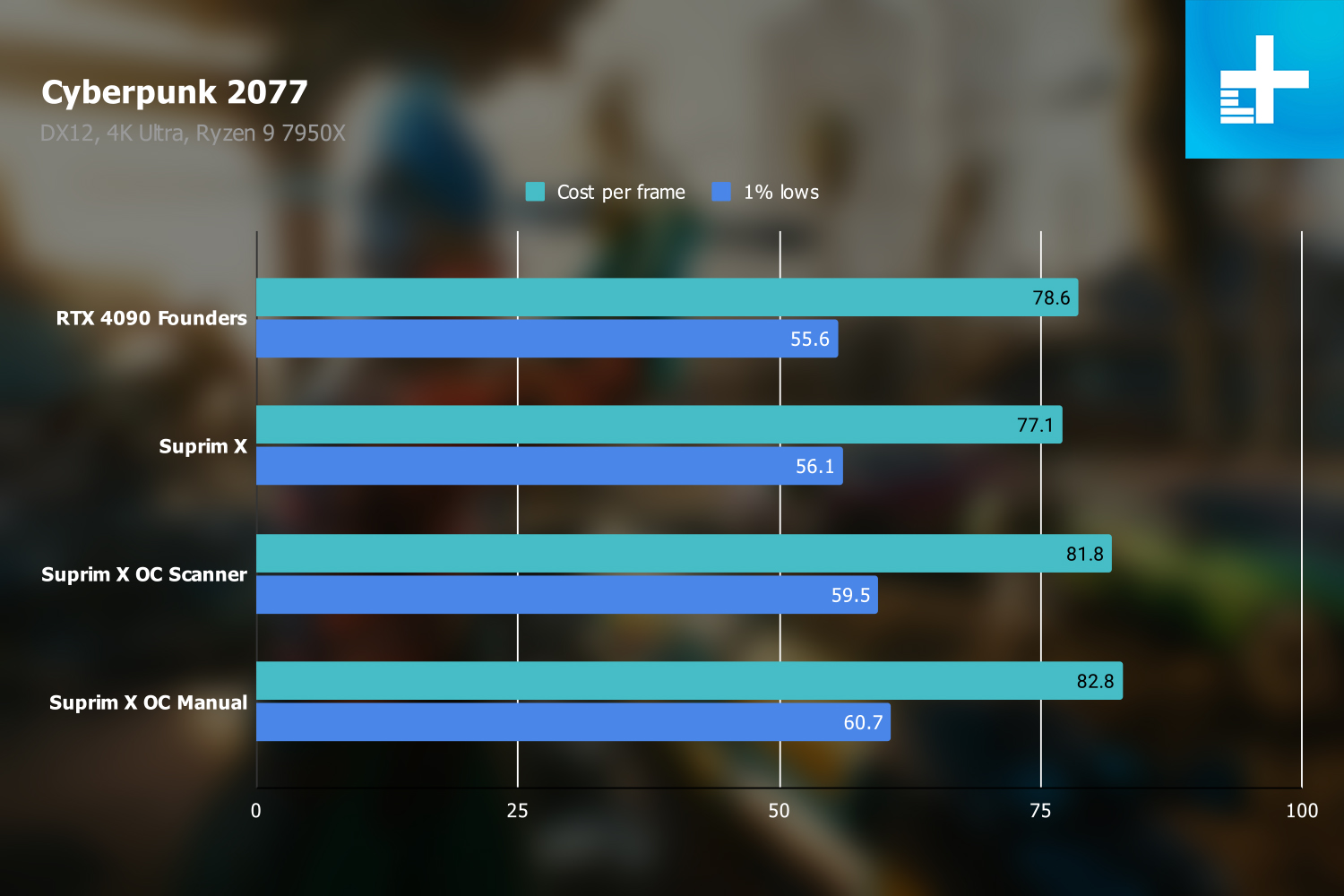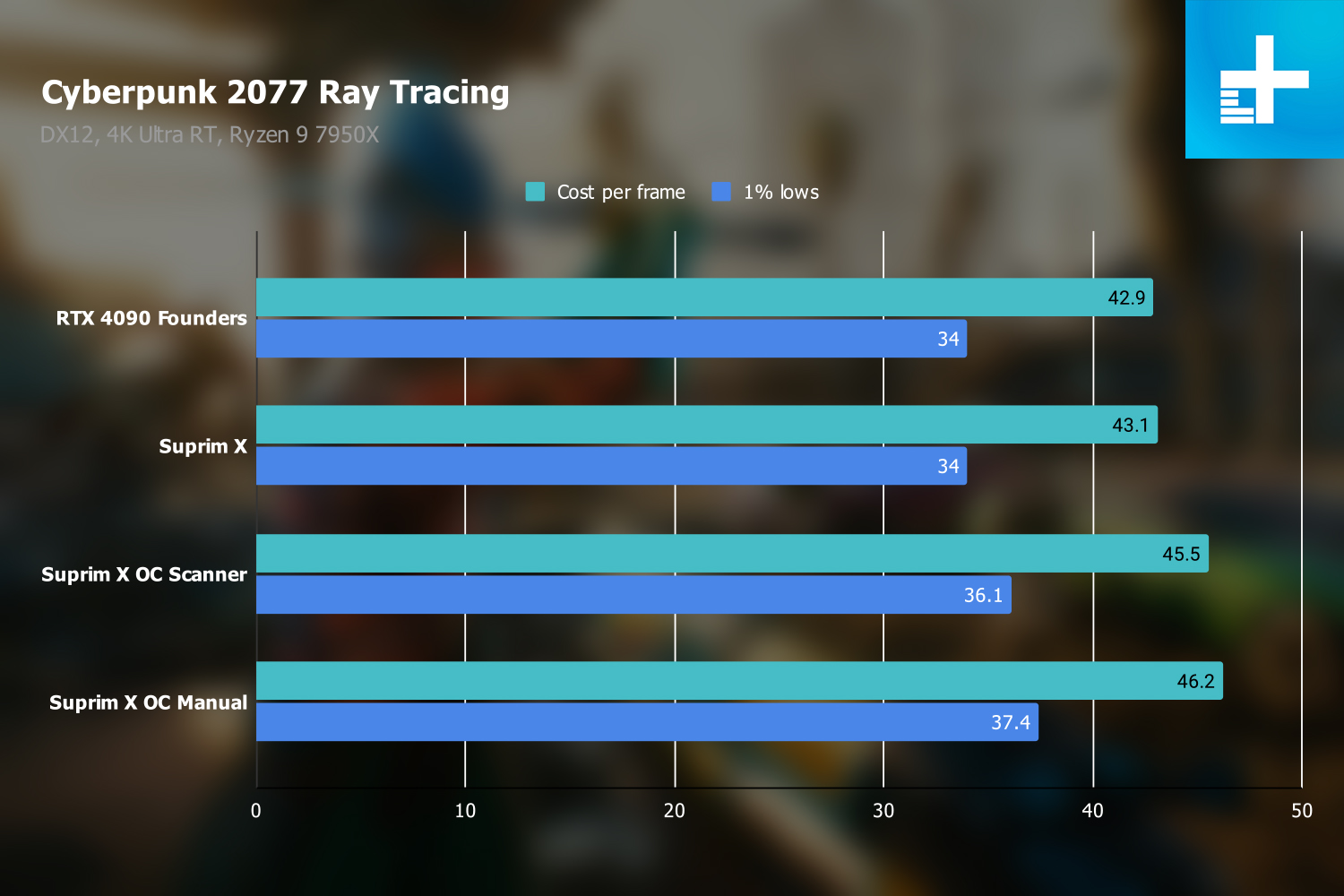The RTX 4090 is a monster graphics card, and it’s insanely fast (just read our RTX 4090 review). But can you push it further? Now that cards are starting to hit store shelves, I popped in MSI’s excellent Suprim X model to see if you can push the 4090’s performance above the already high mark it sets.
And shockingly, you can. The gains aren’t much, but if you can handle the heat and power, the RTX 4090 has some extra room to stretch.
MSI’s RTX 4090 Suprim X

First, a look at our test subject. MSI’s RTX 4090 Suprim X is one of the nicer-looking RTX 4090 models available, and I’ve been a fan of the Suprim X range for a while (read our 12GB RTX 3080 review for another card from this range). The classy silver shell houses a massive heatsink as well as three of MSI’s Torx 5.0 fans. They’re ready to handle even an overclocked RTX 4090, as I’ll dig into later.
MSI hasn’t shared the official clock speeds or power draw of the Suprim X yet, but it does come overclocked out of the gate. At stock, the card drew 460 watts at its highest point, which is 10W above the official spec for the Founder’s Edition RTX 4090. In my testing, however, the Founder’s Edition card only drew 426W.
Similarly, Nvidia says the max boost clock speed of the RTX 4090 is 2.52GHz on the Founder’s Edition model, but I measured 2.76GHz at the card’s highest point. Even then, MSI’s Suprim X comes with a boost out of the factory with a 2.82GHz clock speed in the games I tested. Although this card comes factory overclocked, it also includes a dual BIOS switch that allows you to put it in Silent mode when you don’t need all the power it has to offer.
It’s a monster graphics card that houses a monster GPU, and it comes with a size to match. MSI’s Suprim X is 13.2 inches long, 5.6 inches wide, and 3.1 inches thick, taking up three slots and a bit of change in your case. Thankfully, MSI includes a GPU support bracket like it normally does with Suprim X cards, as well as a specially designed Suprim X mousepad.
Overclocking the RTX 4090

Nvidia’s recent cards are built to run as fast as they can out of the box, so the performance gains from GPU overclocking are usually slim to none. Although I didn’t see big improvements, pushing the Suprim X did provide some tangible increases in performance. It’s not game-changing, but pushing your RTX 4090 with enough cooling can result in higher gaming performance.
At most, I saw a 9% improvement over the Founder Edition RTX 4090 with the Suprim X model and a manual overclock in Gears Tactics. Otherwise, the gains are much less stark. You’re looking at around a 5% boost in Cyberpunk 2077 and only a 4% boost in Red Dead Redemption 2. For most games, overclocking the RTX 4090 isn’t worth it as the card can already hit well past 60 fps in the most demanding titles at 4K.
The exception was Cyberpunk 2077 Ultra Ray Tracing mode. This is still extremely demanding without Nvidia’s Deep Learning Super Sampling (DLSS), and overclocking the Suprim X resulted in a solid 7.7% increase in performance. That doesn’t sound like much, but the OC version meant the game would often run into the low 50s and sometimes even crack 60 fps.
Overclocking showed benefits elsewhere, too. In Red Dead Redemption, the overclocked results show much higher minimum frame rates. That means an overall smoother gaming experience, even if the average frame rate is relatively unchanged.

You don’t have to get your hands too dirty with GPU overclocking to achieve these results, either. As you can see in my charts, I ran some tests with MSI Afterburner’s OC Scanner. On Nvidia GPUs, this scanner automatically determines an overclock for your card in about 30 minutes, and my manual overclock results are only slightly ahead (not enough to matter).
For my manual overclock, I saw most of the benefit in performance simply by raising the power limit in Afterburner. After a lot of trial and error, I ended up with a 108% power limit with an 88-degree Celsius temperature limit, along with a 220MHz boost to the core clock and a 200MHz boost to the memory clock. This is just on the edge of unstable, though. In Red Dead Redemption 2, for example, I had to bump down to 200MHz on the core clock to finish the benchmark.
Power, thermals, and clock speeds

The major limiting factor with overclocking the RTX 4090 is thermals, but the cooling design on the Suprim X allows you to still push the GPU. With my manual overclock, the GPU peaked at 67 degrees Celsius on an open-air test bench. That’s only 3 degrees above the stock card and Founder’s Edition model.

Even more impressive is that temperature considering how much power was running through the RTX 4090 Suprim X. Both at stock and with the OC Scanner, the card topped out at the 460W limit, but with my manual overclock, it drew 511W of power. That’s nearly 90W higher than the highest power I measured on the Founder’s Edition design and with only a minor hit to thermals.

Although the clock speed doesn’t say much about performance, it’s astounding how high the RTX 4090 can scale (and in particular the Suprim X model I tested). With my manual overclock, I was able to crack 3.06GHz, which is just insane. Unfortunately, that clock speed looks a lot better on paper than it does in practice. OC Scanner barely raised clock speeds at all while achieving very similar performance.
OC Scanner bumped my memory speed by 200MHz and didn’t seem to mess with power limit or clock speeds much. There’s extra performance on the table if you overclock the RTX 4090, but going for insane clock speeds won’t materialize into real-world performance gains in many cases.
Should you overclock the RTX 4090?

For most people, overclocking the RTX 4090 isn’t worth it. You can find a little extra performance, but going back and forth with crashes and overclock settings isn’t worth the hassle. The good news is that MSI’s OC Scanner works great. You can squeeze a bit of extra performance out of certain titles, like Gears Tactics, with a manual overclock, but the one-click nature of OC Scanner means you can quickly set your overclock and forget about it.

